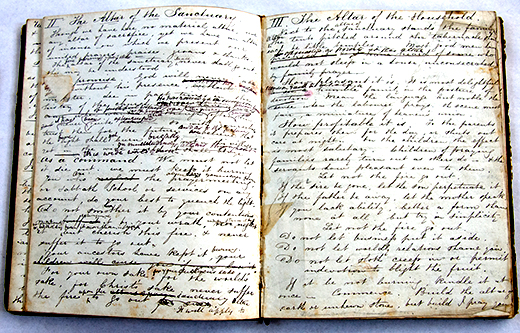The reason the Bible speaks of people being “thrown” into hell is that no one will willingly go there, once they see what it really is. They have chosen sin. They have wanted sin. They do not want the punishment. When they come to the shore of this fiery lake, they must be thrown in. When someone says that no one is in hell who doesn’t want to be there, they give the false impression that hell is within the limits of what humans can tolerate. It inevitably gives the impression that hell is less horrible than Jesus says it is.
How did Jesus expect his audience to think and feel about the way he spoke of hell? The words he chose were not chosen to soften the horror by being accommodating to cultural sensibilities. He spoke of a “fiery furnace” (Matthew 13:42), and “weeping and gnashing teeth” (Luke 13:28), and “outer darkness” (Matthew 25:30), and “their worm [that] does not die” (Mark 9:48), and “eternal punishment” (Matthew 25:46), and “unquenchable fire” (Mark 9:43), and being “cut in pieces” (Matthew 24:51).
These words are chosen to portray hell as an eternal, conscious experience that no one would or could ever “want” if they knew what they were choosing. Therefore, if someone is going to emphasize that people freely “choose” hell, or that no one is there who doesn’t “want” to be there, surely he should make every effort to clarify that, when they get there, they will not want this.
Surely everyone who desires to save people from hell will stress that it is horrible beyond description—weeping, gnashing teeth, darkness, worm-eaten, fiery, furnace-like, dismembering, eternal, punishment, “an abhorrence to all flesh” (Isaiah 66:24).
I thank God, as a hell-deserving sinner, for Jesus Christ my Savior, who became a curse for me and suffered hellish pain that he might deliver me from the wrath to come. While there is time, he will do that for anyone who turns from sin and believes on Jesus Christ.”

